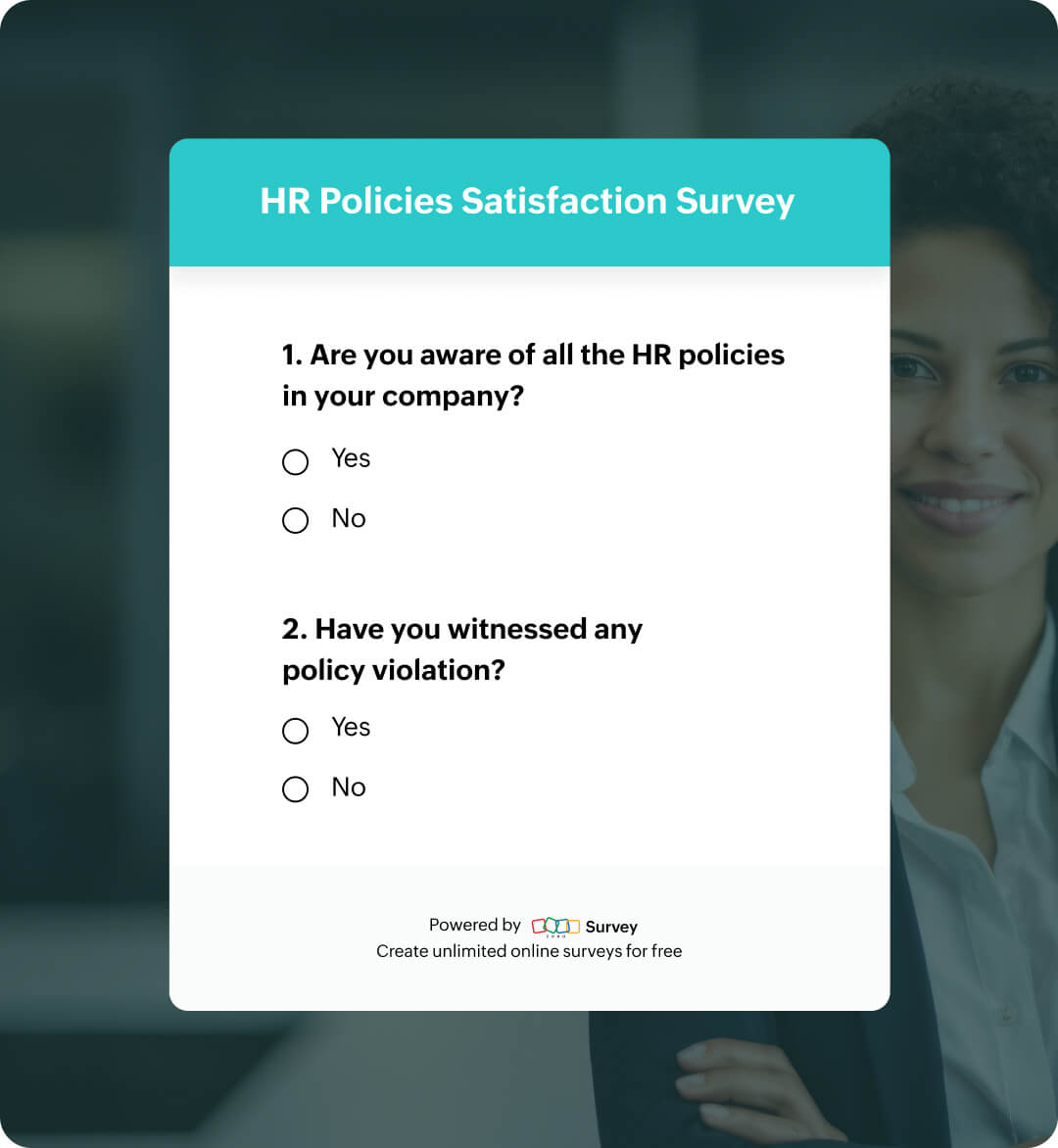HR policies satisfaction survey
Navigating the complexities of the workplace requires a solid foundation of HR policies that not only protect, but empower, employees. Our HR policies satisfaction survey template helps you measure employee satisfaction with your HR policies, so you can design and maintain systems that align with both legal requirements and workforce expectations.
Try this templateWhy are HR policies satisfaction surveys critical?
An HR policies satisfaction survey ensures that your policies are effective, fair, and clear to all employees. It helps you assess whether these policies are truly fostering a supportive work environment and determine which areas may need adjustment or improvement.
HR Policies Satisfaction Survey
14
3500+
1min
Assessing the impact of HR policies through employee feedback surveys
The success of your HR policies hinges on employee buy-in. Surveys provide a direct line to the workforce, so you can gather insights that strengthen your policies, ensuring a healthy organizational structure where employees feel valued and heard. Here are some topics your survey should cover:

Transparency
Determine whether employees are aware of key policies and find them to be straightforward. Effective survey questions might cover the onboarding process, ongoing education, and the availability of resources for policy clarification.
Perceived fairness
Explore employee perceptions of policy enforcement equality. You may touch on promotion processes, disciplinary actions, and whether the policies uphold the company's commitment to fairness.
Effectiveness
Gather detailed feedback on how HR policies impact day-to-day activities. Are employees able to see tangible outcomes from these policies, and do they feel supported by them in the workplace?
Impact on work culture
Evaluating the influence of HR policies on work culture involves examining specific company guidelines and their real-world applications. For instance, how do the company's leave policy, remote work policy, and overtime policy support a healthy work-life balance? Are professional development policies, such as those regarding continued education and training, actively helping employees advance their careers? How do the maternity and paternity leave policies accommodate the needs of expectant parents?
Ease of compliance
Evaluate the practicality of complying with HR policies. This can involve determining whether the policies are reasonable and manageable within the scope of different job roles.
Training and resources
Determine the effectiveness of training programs related to HR policies. Are employees informed about new policies, and do they have sufficient resources to navigate complex HR scenarios?
Feedback
Encourage employees to provide constructive feedback about your policies. Are there policies that seem outdated, unnecessary, or misaligned with the company's philosophy? Inviting suggestions from employees on policy enhancements can lead to practical, on-the-ground insights. For instance, feedback could lead to updates in the company's social media policy, non-disclosure agreements, or grievance handling procedures that address current trends and concerns.


